The Union Budget`s Impact on Fueling Supply Chain Advancements
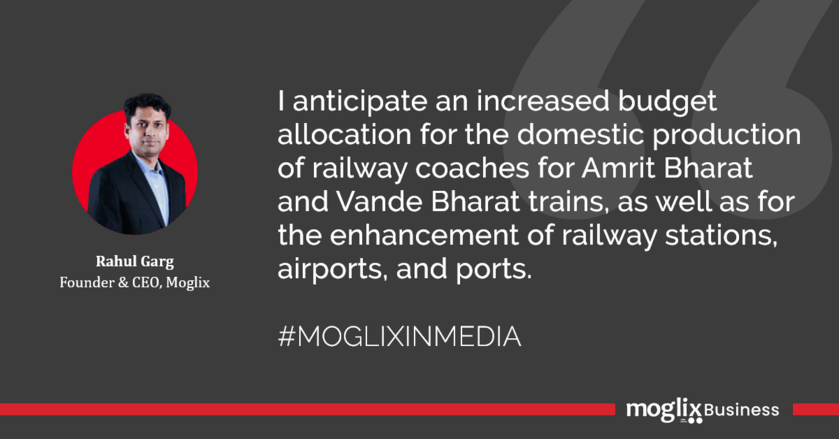
The Union Budget`s Impact on Fueling Supply Chain Advancements
As India strides towards achieving its $4 trillion GDP target in 2024, all eyes are on the impending Union Budget. Serving as a fiscal compass, this budget possesses the potential to reshape the nation’s industrial landscape and supply chain infrastructure. Let’s explore the anticipated aspirations of the supply chain industry, analyzing specific areas where strategic incentives and allocations could unlock significant potential.
Read MoreUnion Budget 2024: A Forward-Thinking Approach to Prolonged Support for Ambitious Infrastructure Development Plans
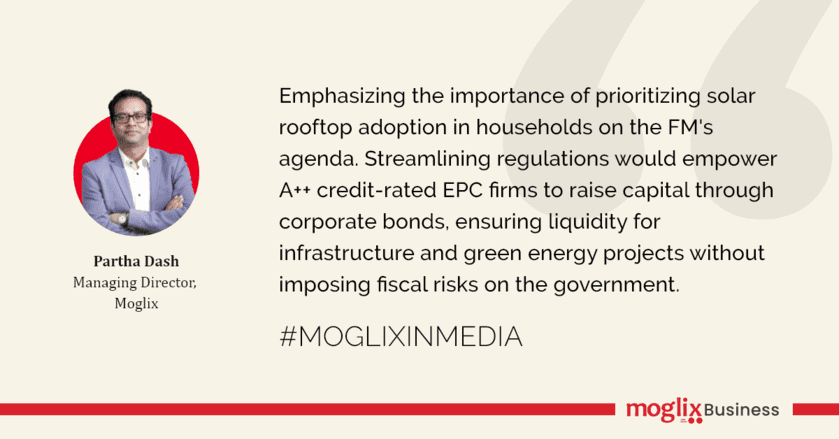
Union Budget 2024: A Forward-Thinking Approach to Prolonged Support for Ambitious Infrastructure Development Plans
Ensuring a steady trajectory and momentum in infrastructure development remains a key expectation for the Union Budget 2024. The ambitious proposal to construct 91 airports and develop 100 smart cities is poised to receive prolonged financial support, reflecting a commitment to bolstering the country’s connectivity and urban landscape.
Read More2024 Fabrication Outlook for Project Heads of EPC Project Developers in India
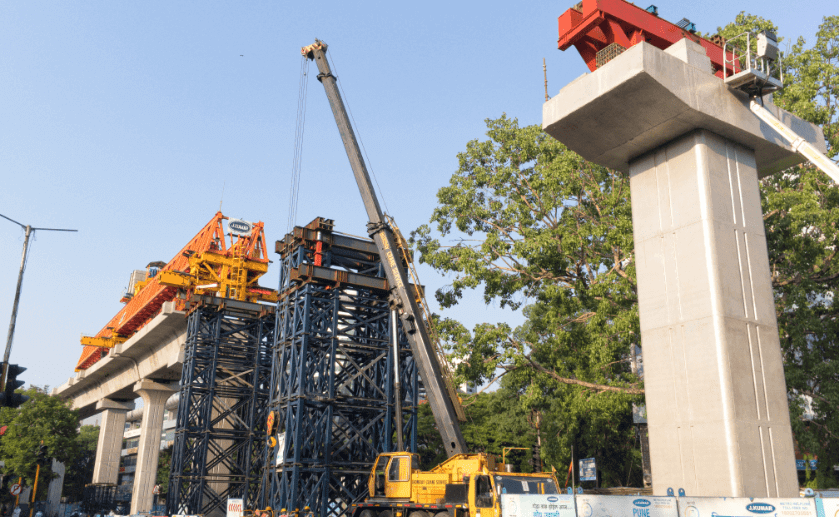
2024 Fabrication Outlook for Project Heads of EPC Project Developers in India
The year 2024 will present a series of dynamic and transformative growth opportunities for EPC project developers in India. The center is fusing Rs 143 lakh crore into modernized railway infra, clean energy, power, and defense sectors. Thus, EPC project heads should prepare to be a part of this sustainable development for reshaping India’s industrial future. In this regard, let’s look at some key events that EPC project heads should consider as their golden ticket to big growth and transformation.
Events in 2024 That Project Heads of EPC Project Developers Should Watch Out For
Four essential 2024 fabrication outlook agendas for EPC project heads:
Railway Infrastructure Spending
India plans a massive upgrade of its railway infrastructure through significant investments and technology improvements. The proposed purchase of 8 high-speed bullet trains promises enhanced connectivity and reduced travel times. Additionally, the redevelopment of over 1,300 stations aims to improve passenger experience while enabling infrastructure growth. Along the same line, the government has ambitious plans to invest in 400 Vande Bharat trains and 3000 new passenger trains in 5 years to demonstrate a commitment to expanding and upgrading the railway network. These projects offer EPC firms ample contracts and tenders for civil construction, signaling, electrification, and rolling stock.
Clean Energy for Mobility
India’s clean mobility sector holds promising growth potential. The goal to command 30% of the global clean mobility market by 2030 reflects an aggressive sustainable transportation push. This entails ₹30 lakh crore investments, with ₹8 lakh crore for green hydrogen development to revolutionize car fuels in years to come. This could be a great opportunity for EPC heads to prepare for addressing concerned manufacturing, charging infrastructure, and energy storage solutions.
Power and Energy
India’s power sector will likely undergo rapid expansion. With power consumption projected to reach 4 trillion units by 2030, growing at 13% CAGR, the sector’s total addressable market is estimated at ₹24 lakh crore. This trajectory offers renewable energy, grid modernization, and energy efficiency prospects.
Defense Sector Spending
India’s defense sector, already the 4th highest global spender, offers emerging EPC potential. Exports to 84 countries and 20% CAGR in defense exports showcase robust expansion. The sector eyes ₹1.75 lakh crore turnover by 2025, presenting infrastructure, manufacturing and maintenance opportunities.
Fabrication Solutions that Project Heads of EPC Project Developers Should Adopt in 2024
Invest in Plant Capacity Expansion and Geographical Diversification
How can your company handle big projects without capacity and service upgrades? It’s crucial. Expanding plant capacity and upgrading machinery and technology is crucial for meeting rising project demand and complexity. Geographical diversification reduces logistics challenges and costs while positioning firms closer to project sites and raw materials, enabling faster, more efficient execution.
Control OPEX Costs & Outsource Auxiliary Works
Almost 27% of organizations outsource to reduce operational costs. Outsourcing non-core activities like painting, fabrication, and welding to specialized subcontractors can significantly reduce operational expenditures. This allows focusing on core competencies while leveraging efficiencies of scale and expertise.
Develop Captive Suppliers with JIT and VMI Capabilities
Imagine the peace of eliminating inventory while accessing materials on-demand from vendors with fast delivery. Establishing captive suppliers with Just-In-Time and Vendor Managed Inventory capabilities can do the same to streamline supply chains. This approach reduces inventory costs and ensures timely material availability, minimizing delays and cost overruns.
Onboard Suppliers onto the Digital Platform
Nearly 83% of CPOs consider digitizing the procurement for enhanced efficiency. Integrating suppliers into a digital project management platform enhances communication, transparency, and real-time tracking of material and progress with ease.
Explore Early Supplier Payment for Bottlenecks
Around 71% of companies feel raw material costs are one of the major supply chain threats. Therefore, EPC firms should consider early payment for bottleneck items to ensure all essential construction materials are available to handle dynamic project requirements and to build strong relationships with suppliers.
Explore Moglix Business custom fabrication solutions here.
Next CEO Forum Session : Taking Wing: Learnings from IndiGo and Akasa Air

Next CEO Forum Session : Taking Wing: Learnings from IndiGo and Akasa Air
Date: 23rd January, 2024
Organizer: IMA India
About the Event: Mr. Rahul Garg, Founder & CEO, Moglix, unfolded his journey and insights in a captivating session on “Unscrambling Unicorns: Moglix’s Success Story” at IMA India‘s CEO Forum in Hyderabad
Pre-Budget Expectations for E-commerce and Supply Chains in India
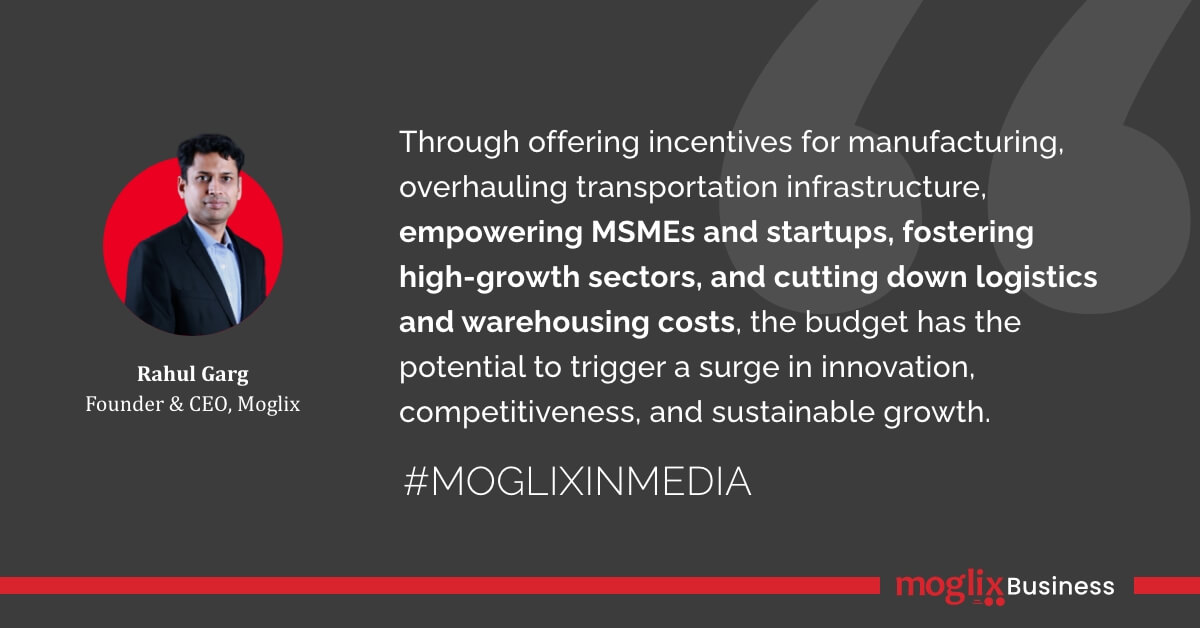
Pre-Budget Expectations for E-commerce and Supply Chains in India
India’s economy is thriving, poised to reach a remarkable USD 4 trillion in real GDP this year. The imminent Union Budget 2024 gains immense importance for the pivotal e-commerce and supply chain sectors, essential pillars propelling India’s growth trajectory. To fully leverage the opportunities ahead, the budget must not only sustain current growth but also initiate transformative change.
Read MoreExtracting Entrepreneurial Wisdom from the Life Journey and Values of Lord Rama
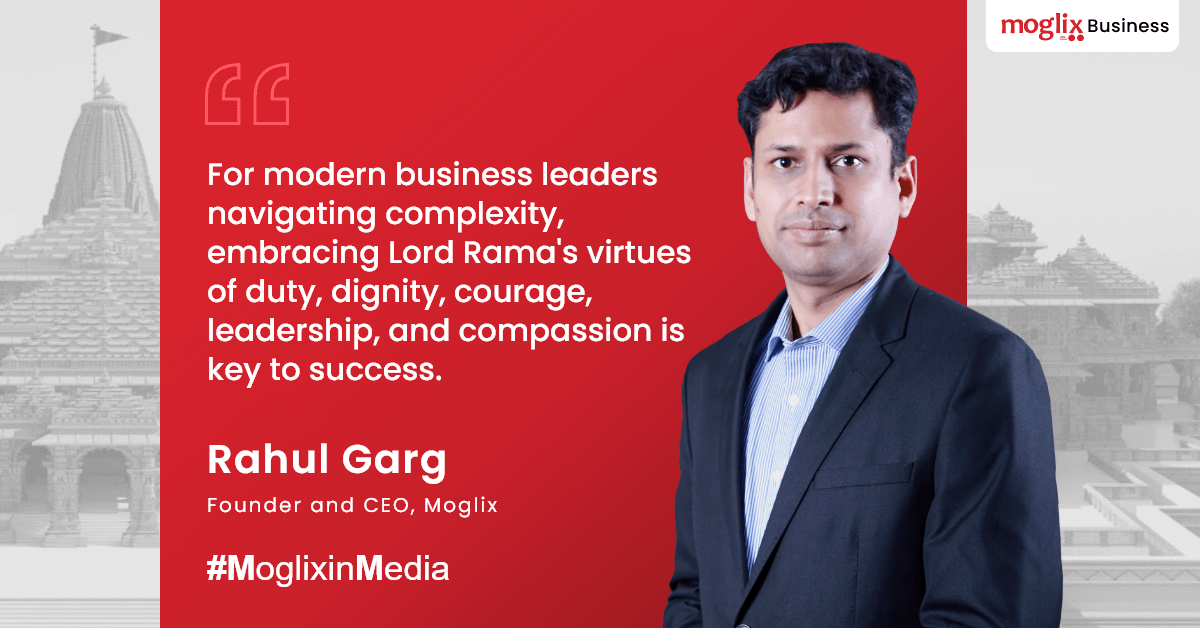
Extracting Entrepreneurial Wisdom from the Life Journey and Values of Lord Rama
Across history, Lord Rama has symbolized courage, dignity, and righteousness, imparting profound lessons that resonate across generations. As leaders maneuver through the complexities of contemporary business, these virtues and teachings offer timeless guidance for constructing enduring success anchored in honor and honesty.
Read MoreShaping 2024 Manufacturing: Innovations, Sustainability, Evolution
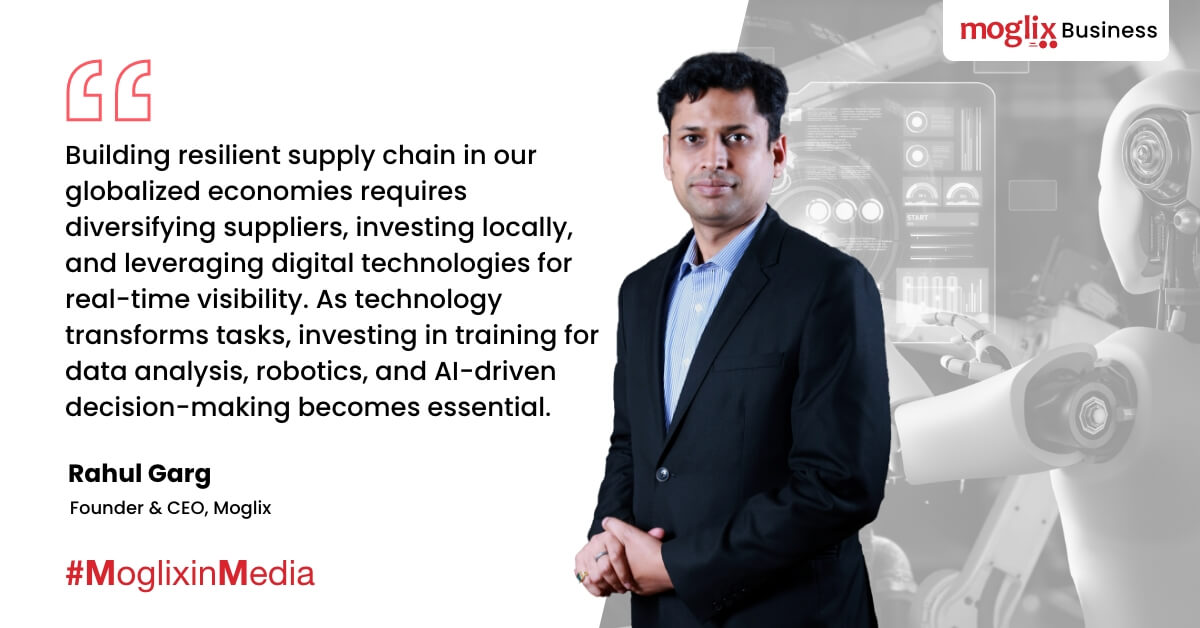
Shaping 2024 Manufacturing: Innovations, Sustainability, Evolution
The era of Industry 4.0 is no longer a distant concept; it is swiftly becoming a tangible reality. Automation and robotics are redefining production lines, substituting manual labor with intelligent machines. AI is enhancing processes, anticipating and averting errors, and facilitating highly personalized product experiences. From self-guided robots on assembly lines to AI-driven quality control systems, technology is revolutionizing the essence of manufacturing.
Read MoreKey E-commerce Supply Chain Trends for 2024
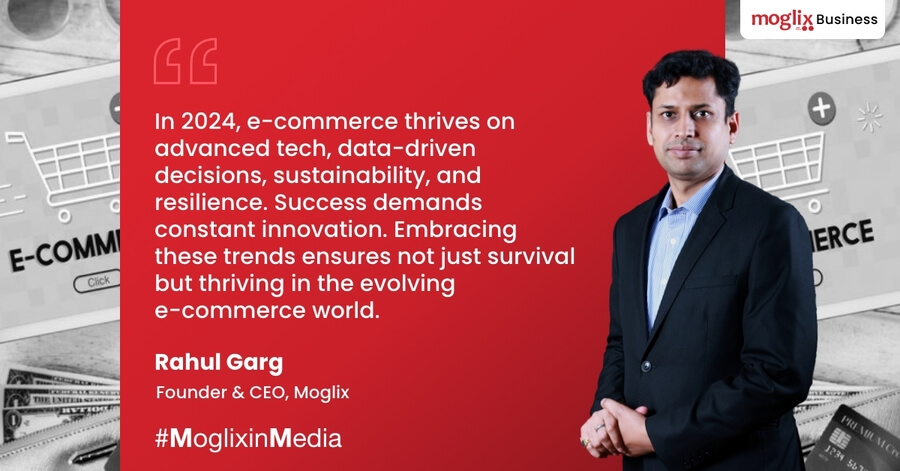
Key E-commerce Supply Chain Trends for 2024
E-commerce is growing rapidly, and sales are expected to reach $6.3 trillion by 2024, increasing by almost 10% each year. Behind the scenes of online shopping, there’s a complex system of moving products from warehouses to doorsteps. This dynamic e-commerce landscape constantly shifts, posing challenges for businesses.
Read MoreStrengthening Supply Chains: Unlocking Efficiency for Optimal Performance

Strengthening Supply Chains: Unlocking Efficiency for Optimal Performance
In this era of connectivity, strategic digital shifts are reshaping supply chain dynamics, proving to be a game-changer for global businesses. Prioritizing digital transformations to fortify supply chains is essential for enhancing efficiency, managing risks, and achieving ESG goals. Businesses worldwide are leveraging technology to address long-standing bottlenecks disrupting regular operations.
Read More2024 Procurement Outlook for CEOs of Infrastructure Project Developers in India

2024 Procurement Outlook for CEOs of Infrastructure Project Developers in India
The 2024 procurement outlook presents a mixed bag of challenges and opportunities for CEOs of infrastructure project developers in India. While the current economic downturn has instilled a sense of caution, 2024 holds promise. India is planning to invest nearly Rs 143 lakh crore in infrastructure over seven years through 2030 – a substantial increase from the Rs 67 lakh crore in the preceding period. That said, CEOs should focus on four major key areas to optimize their supply chains and to drive growth and innovation in their projects in 2024.
4 Sectors CEOs of Infrastructure Project Developers in India Should Watch Out in 2024
Roads and Highways
The Union Budget 2023-24 has allocated an enhanced outlay of ₹1.62 lakh crore to the National Highways Authority of India (NHAI) as part of MoRTH’s capital expenditure plan for the current fiscal year. The budget also marked a notable hike in capital expenditure of NHAI projects with an additional allocation of INR 70,000 crores. Looking at this level of commitment, CEOs must expect even greater momentum in 2024 from the Government of India in the upcoming union budget. As the government is planning for faster completion of projects in 2024, you can expect faster approval of procurement to facilitate smoother transportation and logistics across the country.
Power T&D
India’s transmission and distribution (T&D) segment is also trying to achieve notable progress in grid physical structure expansion and technological advancements. Under the Green Energy Corridors (GECs) program initiated in 2015, India is aspiring to lay out 9700 KM of interstate T&D lines with 22,600 MVA of substation capacity by 2024. Nearly INR 500 crores are anticipated to be invested in T&D lines for 22,000 MVA capacity to upgrade the existing power transmission network.
Renewable Energy Generation
Green energy is one of the major areas of focus under the Amrit Kaal scheme for the next 25 years. A whooping ₹35,000 crore has been sanctioned for “priority capital investment” to push green hydrogen promotion through building renewable energy projects of 4,000 MW hours capacity. The budget for solar power has been raised to ₹4,970 crore, up from ₹3,469, to build solar grids worth 10,000 MW capacity. Additionally,₹19500 crores program to boost the National Green Hydrogen Mission is also on the cards. The aim is to increase the total renewable energy capacity by four times by 2030.
Ports
Ports carry 90% of international trade by volume. That’s why the GOI has set an ambitious target of meeting a $1000 billion export target for FY 2025-2026. 225 projects of ₹2.17 lakh of revenue capex are already in the implementation stage, and there will be a greater focus on single window clearance under PM Gati Shakti in 2024. For CEOs of infrastructure project developers, this represents a massive opportunity for bidding and involvement in diverse projects to generate revenue and develop strategic partnerships.
How CEOs of Infrastructure Project Developers Should Gear Up Their Supply Chain in 2024?
In 2024, CEOs of Infrastructure Project Developers should focus on the agile completion of projects in the PM Gati Shakti‘s Harmonized Master List (HML) by establishing a working capital green channel for swift OPEX purchases. Prioritizing the upgrade of legacy IT assets, like ERP, is crucial for digital procurement transformation. Additionally, adopting a site aggregation model based on vendor consolidation for construction material procurement will enhance efficiency. Implementing an end-to-end analytics dashboard for weekly progress reviews of HML projects will further streamline operations and ensure timely project completion. Visit Moglix’s infrastructure management solutions to learn more about procurement of TMT steel bar, crash barriers, bitumen and more.
